Are you looking for a clear and concise way to draft a confidentiality agreement? Understanding the fundamental components of this type of contract is essential for protecting sensitive information. In this article, we'll explore a reliable letter template that can help streamline the process of creating a confidentiality agreement tailored to your needs. So, let's dive in and uncover the key elements that will keep your confidential information safe!
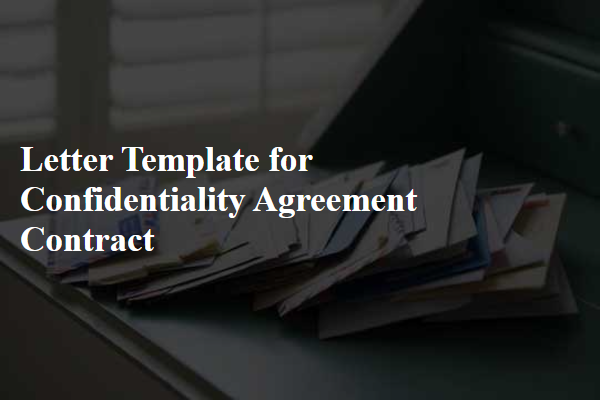
Parties involved and definitions
The confidentiality agreement contract encompasses two primary parties: the Disclosing Party (the individual or entity sharing confidential information, such as a corporation based in New York with an annual revenue exceeding $5 million) and the Receiving Party (the individual or entity receiving the confidential information, possibly a startup firm engaged in technology development in Silicon Valley). Definitions include "Confidential Information" referring to proprietary data (e.g., trade secrets, business plans, financial records) disclosed in any form (written, oral, digital) and "Purpose" indicating the specific reason for sharing the confidential information (such as evaluating a potential business partnership). Other terms may encompass "Duration" (the time frame within which confidentiality must be maintained, often ranging from 2 to 5 years) and "Permitted Disclosures" outlining scenarios when sharing is allowed (such as legal requirements or with prior consent).
Purpose and scope of confidentiality
Confidentiality agreements serve to protect sensitive information shared between parties, ensuring proprietary data remains secure. The primary purpose encompasses safeguarding trade secrets, business strategies, and personal information. Scope typically includes the duration of confidentiality (often spanning several years), specific types of confidential information (such as client lists, financial records, or intellectual property), and obligations of the receiving party to limit disclosure. Violations may result in legal consequences, emphasizing the importance of adherence for both parties involved. Clearly defined terms create a framework for trust and collaboration while mitigating risks associated with unauthorized information sharing.
Obligations and responsibilities
The obligations and responsibilities outlined in a confidentiality agreement contract ensure the protection of sensitive information shared between parties, such as trade secrets or proprietary data. Parties involved are required to identify confidential information such as customer lists, financial reports, and product designs. They must refrain from disclosing this information to unauthorized individuals or entities. Compliance with reporting procedures (for example, notifying the disclosing party of any breaches within 48 hours) is critical. Additionally, parties must ensure that employees and subcontractors who have access to confidential information are also bound by similar confidentiality obligations. The duration of these obligations, often extending up to five years after the agreement's termination, reinforces the importance of safeguarding proprietary information. Failure to adhere to these responsibilities can result in legal consequences, including financial penalties or litigation in jurisdictions specified in the contract.
Term and termination conditions
Termination conditions in a confidentiality agreement define the duration and circumstances under which the agreement can be ended. Typically, agreements stipulate that the confidentiality obligations remain effective for a specified period, often ranging from two to five years, post-termination. Events triggering termination can include mutual written consent, completion of contractual obligations, or breach of terms that remains uncured after a defined notice period (commonly 30 days). Additionally, conditions surrounding the handling of confidential information post-termination are outlined, ensuring that sensitive information is returned or destroyed in accordance with regulations. Clear definitions help prevent disputes and clarify expectations regarding the duration of confidentiality and potential repercussions for violations.
Consequences of breach and legal remedies
A breach of a confidentiality agreement can lead to significant consequences for the violating party. Legal repercussions include potential lawsuits, where the wronged party, often a business or individual, may seek damages in monetary terms for loss of revenue or harm to reputation. Additionally, courts can issue injunctions to prevent further dissemination of confidential information, mandating specific actions to protect sensitive data. For example, in corporate contexts, a breach may also trigger enforcement of non-compete clauses, limiting the offending party's ability to work in similar industries. Ultimately, the ramifications may extend beyond financial penalties, leading to a permanent loss of trust and future business relationships in the community.
Letter Template For Confidentiality Agreement Contract Samples
Letter template of confidentiality agreement for intellectual property protection.
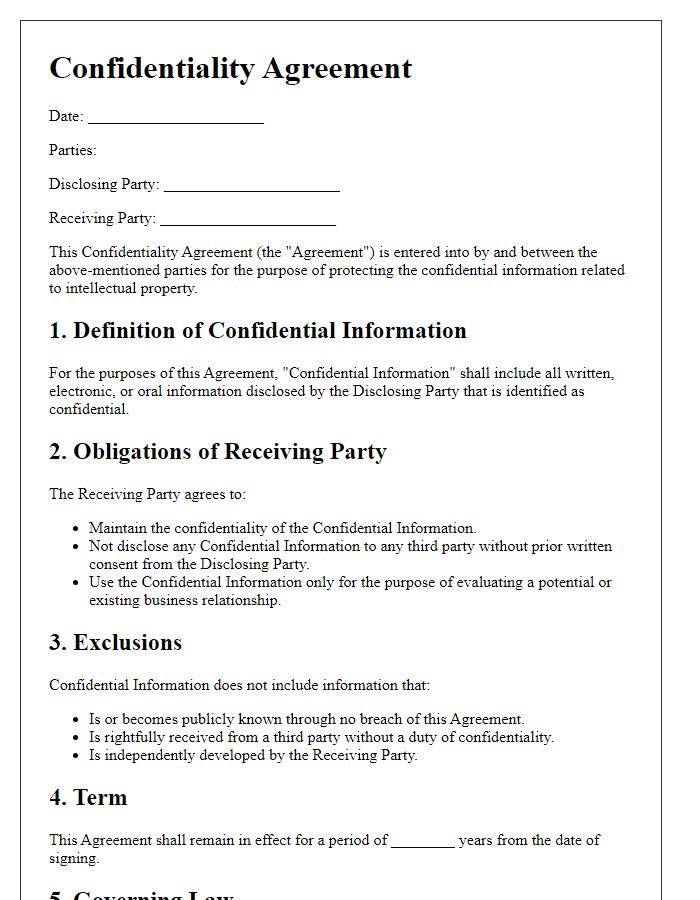

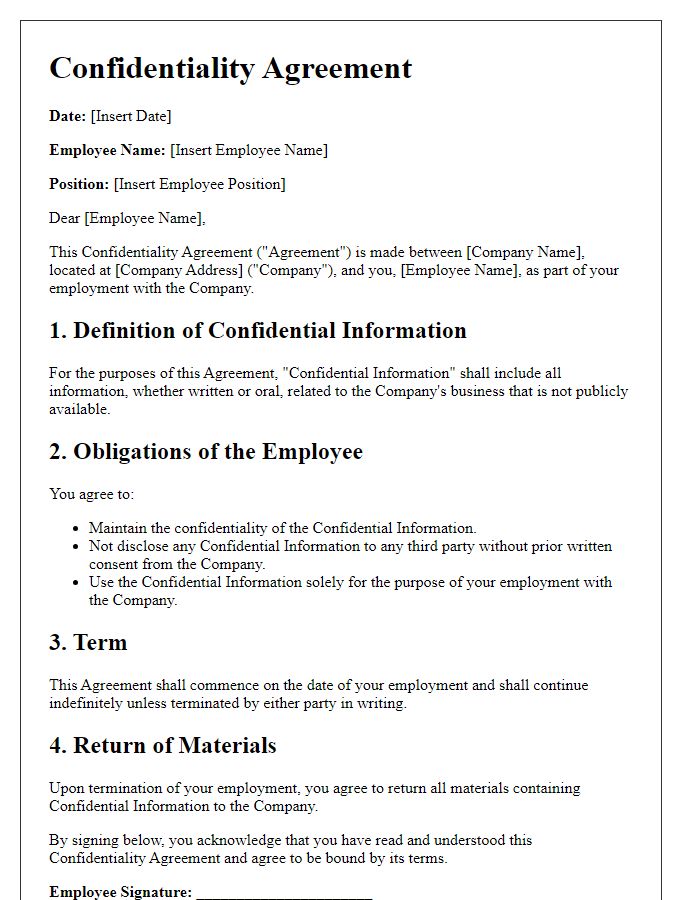
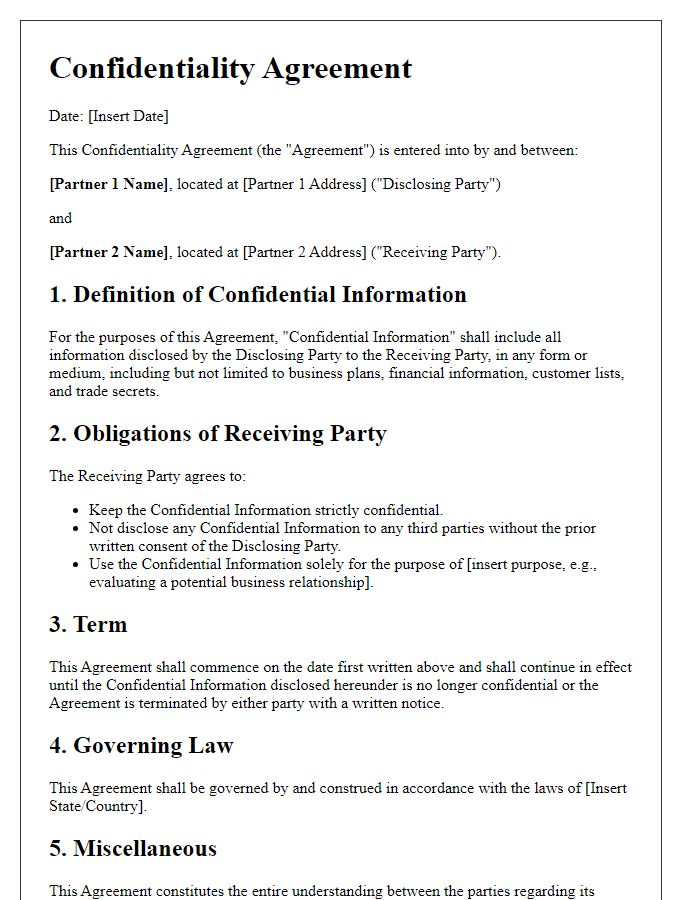
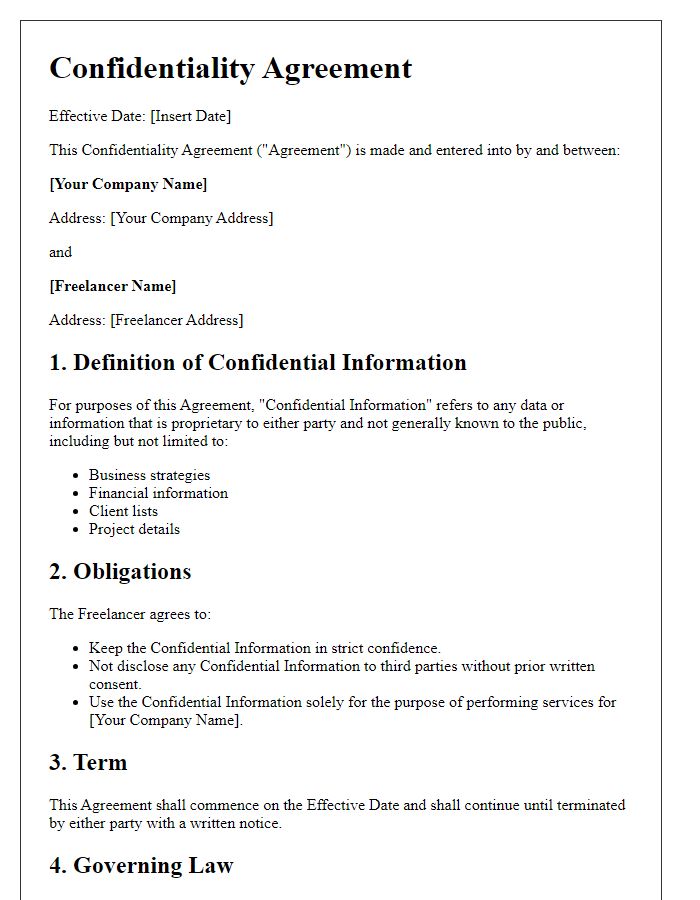
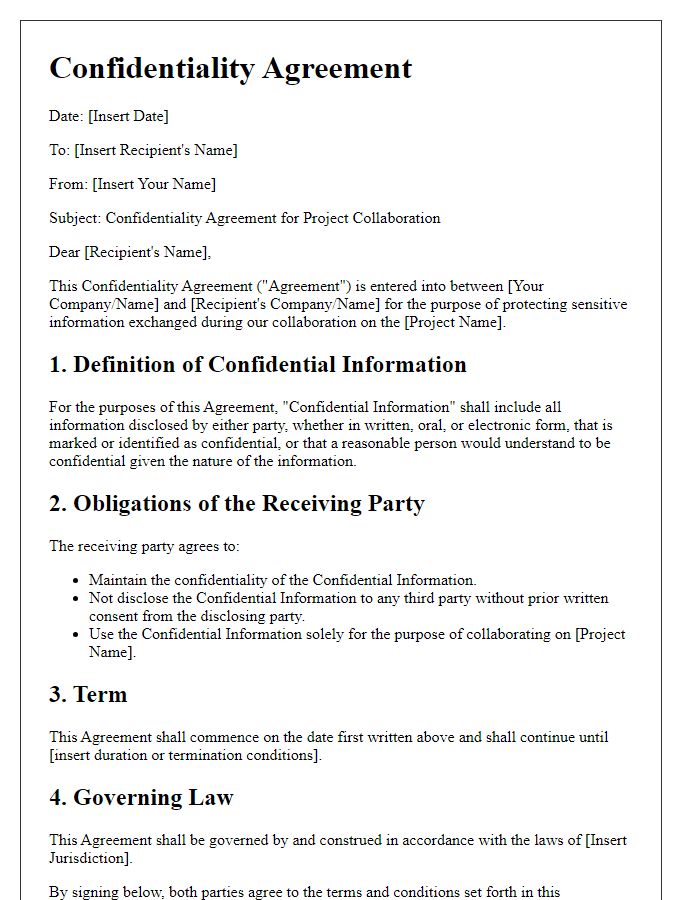
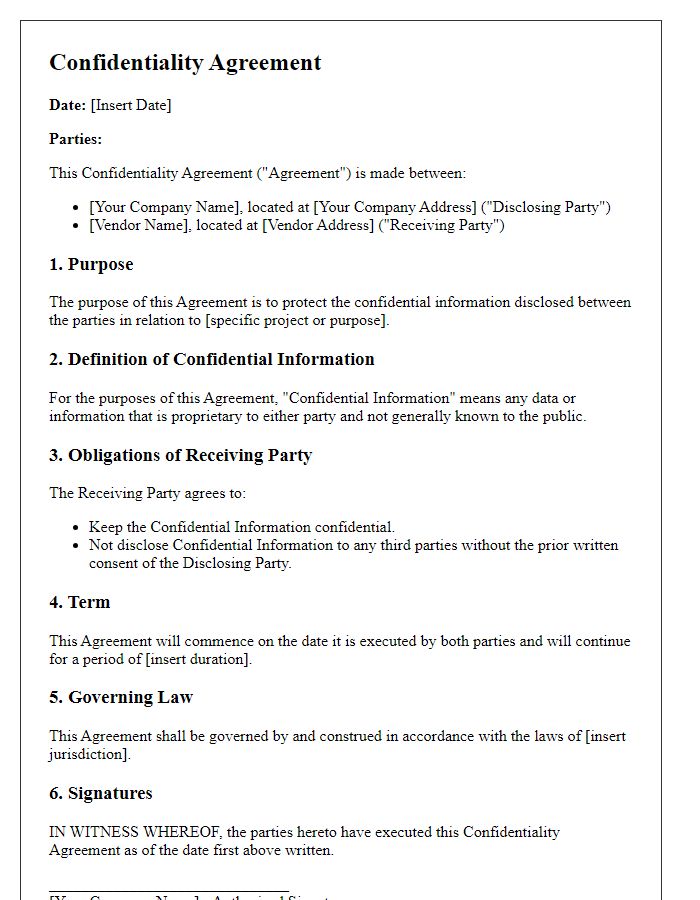
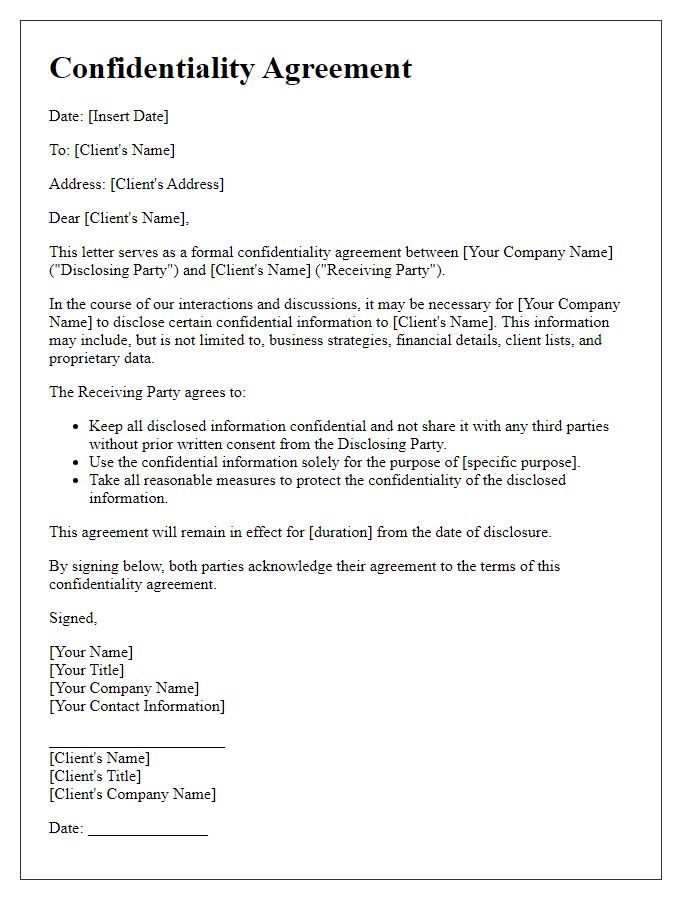
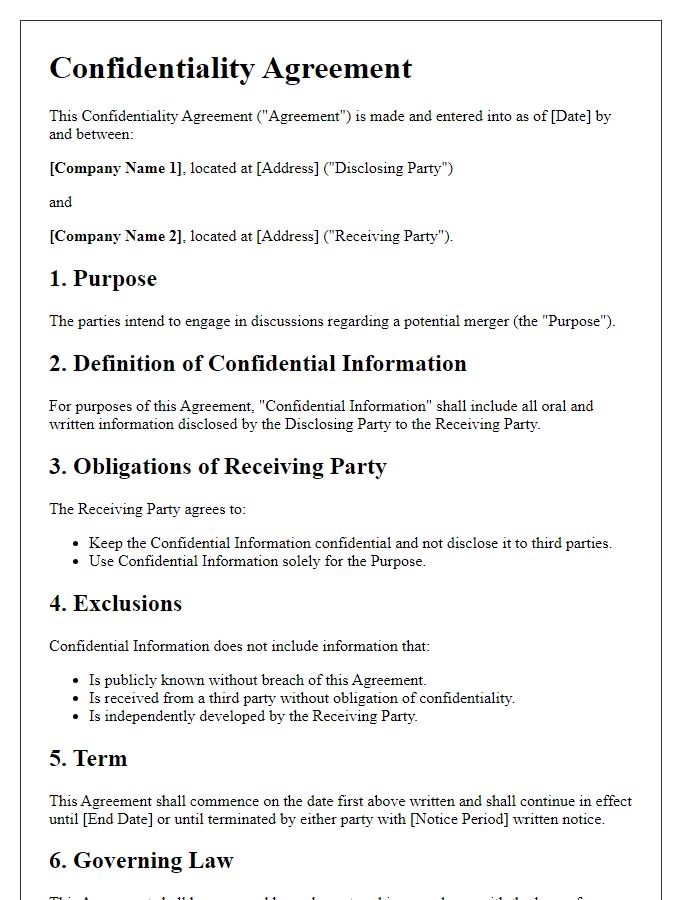
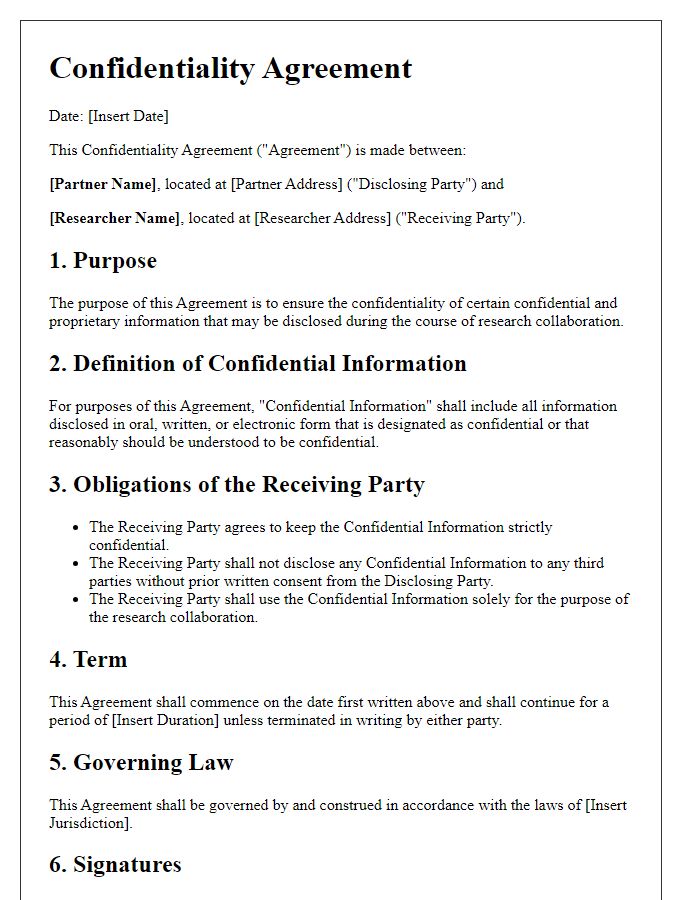
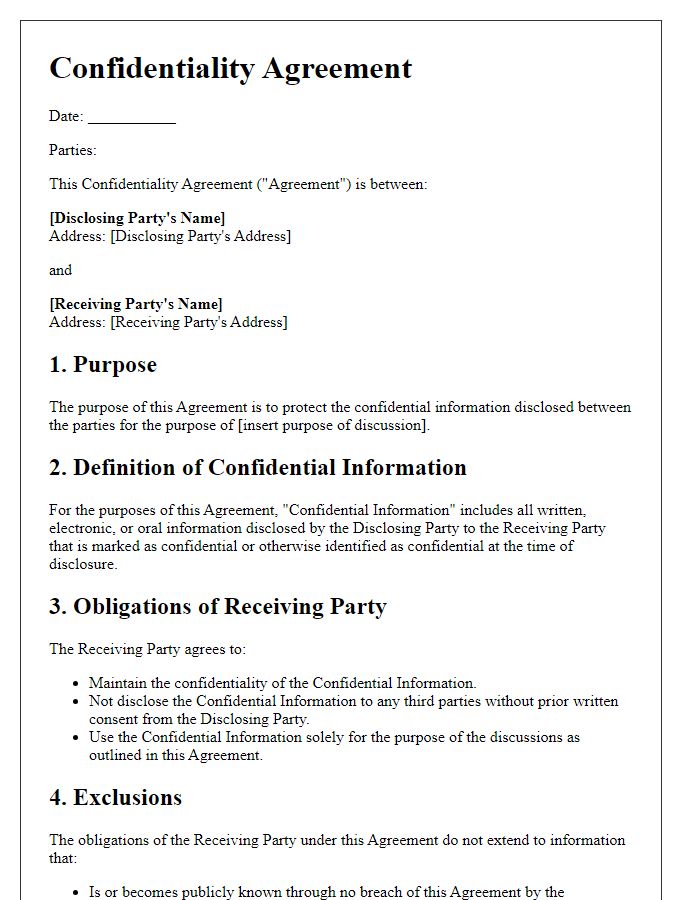

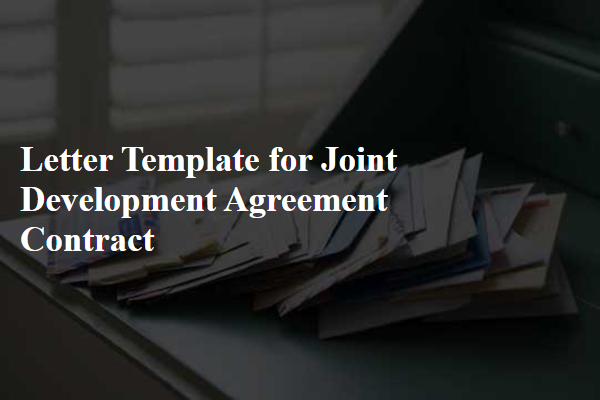
Comments